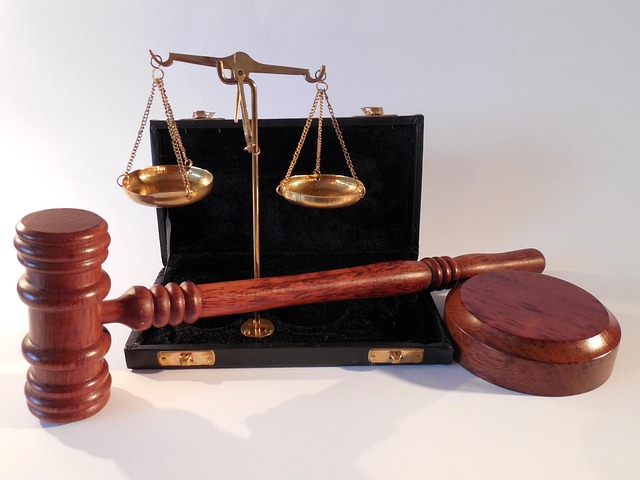Public corruption charges, including fraud, bribery, and embezzlement, require strategic legal defenses focused on understanding complex regulations and demonstrating due diligence. Anti-corruption legislation globally shares common elements like transparency and accounting practices. Defending against financial regulation violations involves document review, financial accounting, and compliance measures to prove legitimate activities and counter prosecution narratives. Case studies provide insights into successful defense strategies, exposing procedural flaws and protecting client rights while influencing regulatory reforms for stronger public systems.
“Public Corruption Charges: Navigating the Complexities of Defending Against Financial Regulation Violations explores the intricate world of public integrity. This article delves into the definition and diverse types of financial regulation breaches, offering a comprehensive overview. We analyze the legal framework surrounding these charges, providing insights into laws and regulations designed to combat corruption.
Additionally, we present effective strategies for defense, guiding readers through building robust cases against accusations. From evidence handling to case studies, this piece equips readers with knowledge on navigating the challenges of corrupt practices cases successfully.”
- Understanding Public Corruption Charges: Definition and Types of Financial Regulation Violations
- The Legal Framework: Laws and Regulations Governing Public Corruption
- Strategies for Defense: Building a Strong Case Against Accusations
- Evidence and Proving Intent: Navigating the Challenges in Corrupt Practices Cases
- Case Studies: Success Stories and Lessons Learned in Defending Against Financial Regulation Violations
Understanding Public Corruption Charges: Definition and Types of Financial Regulation Violations

Public Corruption Charges refer to a range of illegal activities involving misuse of public office for personal gain. At its core, this involves individuals in positions of power exploiting their authority for financial benefit, often through fraud, bribery, or embezzlement. Understanding these charges is crucial when navigating legal complexities and defending against Financial Regulation Violations, especially in the context of white collar defense. These violations can encompass a broad spectrum of offenses, from misuse of public funds to unethical dealings in private enterprises.
Defending Against Financial Regulation Violations requires a strategic approach, particularly when dealing with white collar and economic crimes. Lawyers specializing in white collar defense help individuals accused of these crimes navigate the legal system. They aim to avoid indictment by examining the facts, challenging evidence, and leveraging legal loopholes while ensuring compliance with financial regulations. The goal is not only to protect clients but also to uphold justice by deterring future instances of corruption.
The Legal Framework: Laws and Regulations Governing Public Corruption

The legal framework surrounding public corruption charges is a complex web of laws and regulations designed to combat unethical behavior in government. These rules aim to uphold the integrity of public institutions by holding officials accountable for any misuse of power or involvement in illicit financial activities. At the core, anti-corruption legislation targets violations of financial regulations, such as bribery, embezzlement, and conflict of interest. Each jurisdiction has its own set of laws, but many share common elements like transparency requirements, strict accounting practices, and robust reporting mechanisms.
Defending against financial regulation violations in public corruption cases is a strategic endeavor. Accused individuals or entities often navigate high-stakes cases, with significant legal and reputational consequences. Across the country, various strategies are employed to avoid indictment, including rigorous document review for evidence of misconduct, meticulous financial accounting practices, and proactive compliance measures. The goal is to demonstrate due diligence and adherence to regulatory norms, thereby mitigating potential charges and ensuring fairness in the legal process.
Strategies for Defense: Building a Strong Case Against Accusations

Facing public corruption charges is a complex and challenging task, but a robust defense strategy can significantly strengthen an individual’s position. One key approach is to gather comprehensive evidence that refutes the accusations. This involves meticulous documentation, including financial records, communications, and any relevant activities that can prove innocence or mitigate the alleged actions. By presenting a well-organized and detailed case, defendants can counter the prosecution’s narrative.
Additionally, building relationships with experts in fields related to the case is crucial. Defense attorneys should consult with financial regulators, ethicists, and even members of the philanthropic and political communities to gather insights and challenge any perceived violations of financial regulation. These strategies, combined with effective legal arguments, can help for his clients to navigate the complexities of public corruption charges and present a compelling defense.
Evidence and Proving Intent: Navigating the Challenges in Corrupt Practices Cases

In public corruption cases, proving intent is a significant challenge, as it requires examining complex financial transactions and constructing a compelling narrative. Defense attorneys must navigate intricate legal landscapes to defend against financial regulation violations, ensuring that their clients’ actions are not misconstrued as corrupt practices. The line between legitimate business dealings and illicit corruption can be blurred, making it crucial for lawyers to scrutinize evidence and present a robust defense. By employing strategic tactics, they aim to achieve winning challenging defense verdicts, especially in high-stakes cases involving corporate and individual clients.
Juries play a pivotal role in these trials, demanding clear and convincing evidence to reach their decisions. Defense teams must be adept at presenting alternative explanations and countering the prosecution’s narrative. This often involves delving into financial records, expert testimonies, and contextual understanding of industry practices. Through meticulous preparation and persuasive arguments, successful defense strategies can lead to positive outcomes, demonstrating that corporate and individual clients are not automatically guilty of public corruption charges.
Case Studies: Success Stories and Lessons Learned in Defending Against Financial Regulation Violations

In the battle against public corruption, case studies offer invaluable insights for both prosecutors and defenders. Success stories highlight effective strategies employed by lawyers to defend against financial regulation violations. For instance, skilled attorneys have successfully challenged evidence in jury trials, exposing procedural flaws that led to acquittals. These victories not only protect the rights of their clients but also demonstrate the importance of a robust legal defense.
Furthermore, lessons learned from these cases extend beyond individual outcomes. They reveal trends and weaknesses in regulatory frameworks, prompting reforms. By understanding what works and what doesn’t, philanthropic and political communities can better support and shape anti-corruption efforts. This proactive approach ensures that legal defenses keep pace with evolving financial regulations, ultimately fortifying the integrity of public systems.
In navigating the complex landscape of public corruption charges, understanding the legal framework, strategic defense options, and evidence requirements is paramount. By recognizing various types of financial regulation violations and leveraging successful case studies as guides, individuals and organizations can build robust defenses against accusations. Armed with this knowledge, those faced with such allegations can confidently navigate the challenges, ensuring a fair and just outcome in defending against financial regulation violations.






